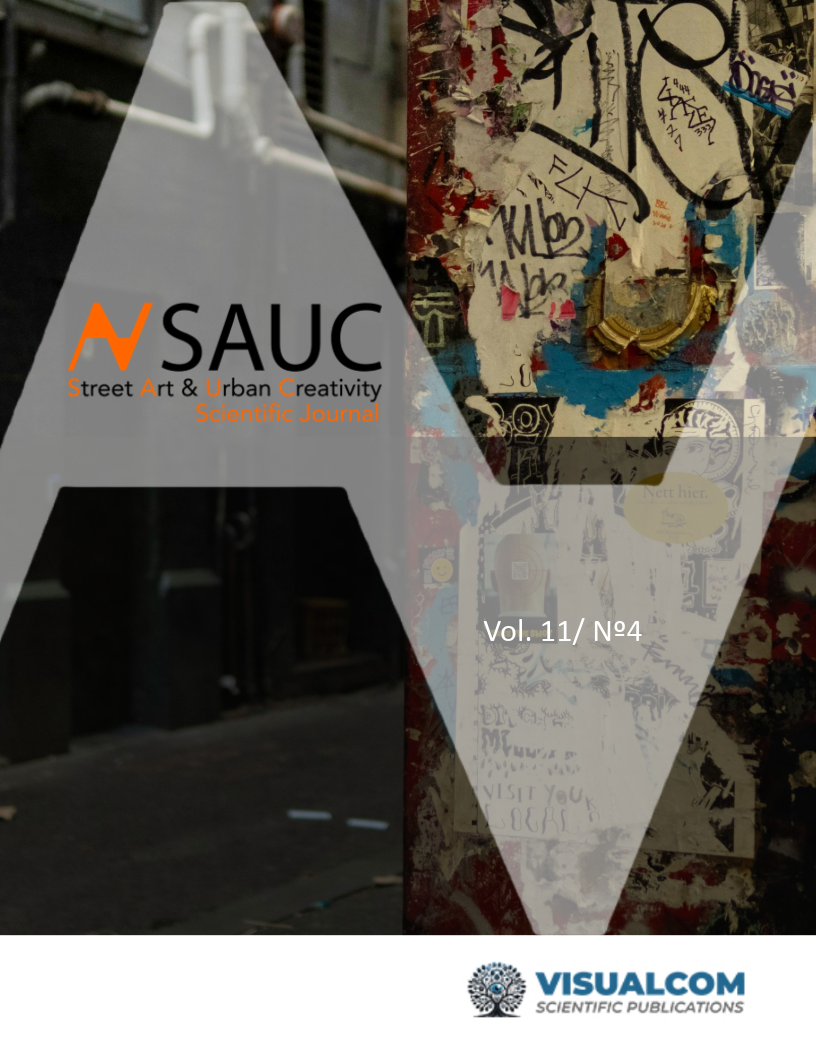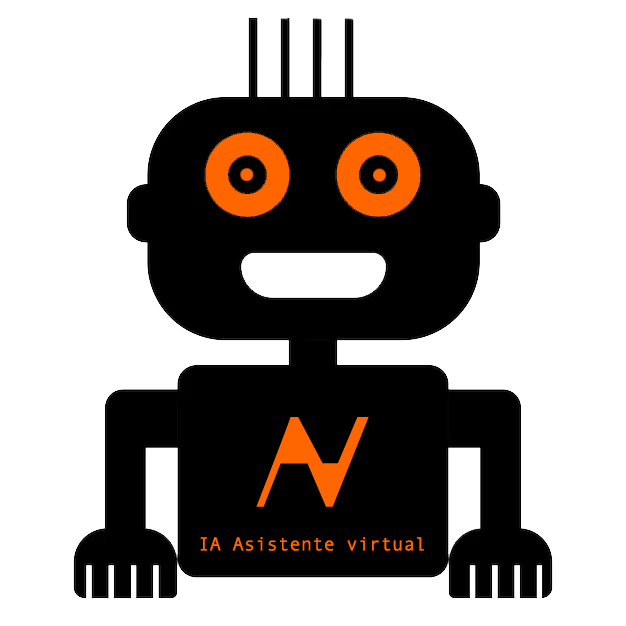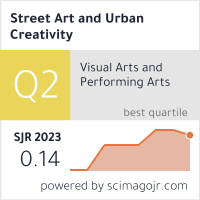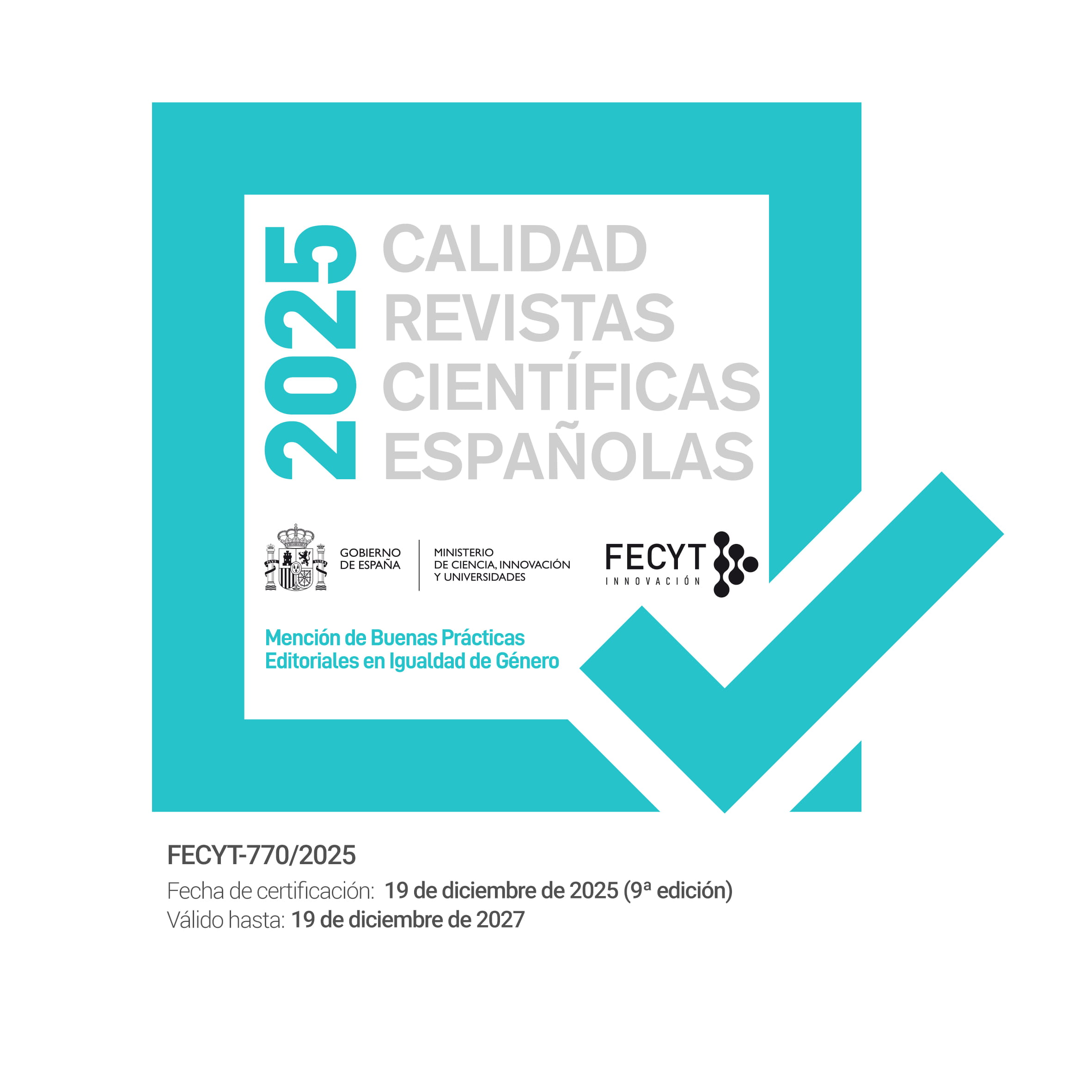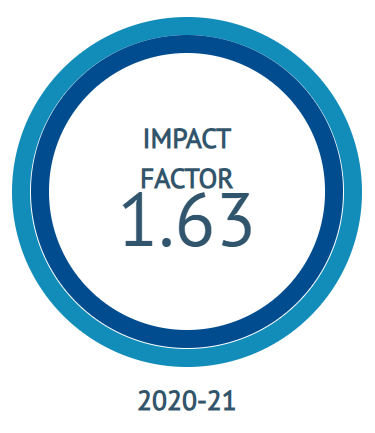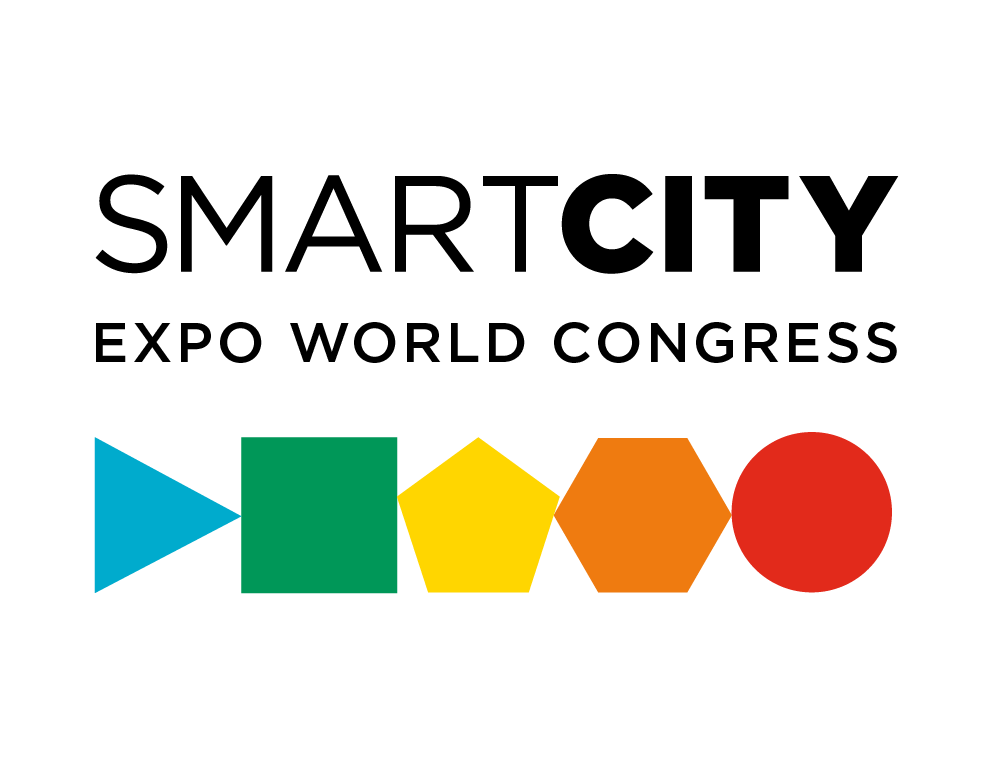Qualitative Perceptions of Interdisciplinarity by Future Teachers
DOI:
https://doi.org/10.62161/sauc.v11.5796Keywords:
Art, Creativity, Cognition, Interdisciplinary Research, Literature, Primary School Teacher, Teaching methodAbstract
This study explores how interdisciplinary education fosters creativity and civic engagement in creative cities. By merging diverse disciplines, it enables the analysis of complex problems from multiple perspectives and promotes communication across fields. Using a qualitative approach, focus groups with education students examined the interplay between printmaking and poetry. After an educational intervention, the study identified five categories and seven codes, revealing three semantic planes of interaction. This cognitive-affective process shows the value of integrating art, literature, philosophy, and psychology to enrich teaching. The findings highlight the thematic convergence between poetry and visual art, demonstrating their synergy in expressing complex emotions. The study supports a deeper understanding of both art and literature in education. Ultimately, this interdisciplinary method enhances students’ engagement and appreciation of artistic and literary expression.
Downloads
Global Statistics ℹ️
|
428
Views
|
197
Downloads
|
|
625
Total
|
|
References
Abra, J. y Castro, J. (2023). Interdisciplinary Teaching Practices in STEAM Education in Brazil. London Review of Education, 21(1), 1-13. https://doi.org/10.14324/LRE.21.1.38
Ashby, I. y Exter, M. (2019). Designing for Interdisciplinarity in Higher Education; Considerations for Instructional designers. TechTrends, 63, 202-208. https://doi.org/10.1007/s11528-018-0352-z
Aygun, M., Hacioglu, Y., Ceylan, D. y Durkan, E. (2022). Interdisciplinary Science and Social Studies Education in the Context of Five Weeks in a Balloon. Journal of Science Learning, 5(1), 91-102. https://doi.org/10.17509/jsl.v5i1.32968
Beer, L. E., Rodriguez, K., Taylor, C., Martinez-Jones, N., Griffin, J., Smith, T. R. y Anaya, R. (2015). Awareness, integration and interconnectedness: Contemplative practices of higher education professionals. Journal of transformative education, 13(2), 161-185. http://dx.doi.org/10.1177/1541344615572850
Bookhagen, B., Koeberl, C., Juang, L. y DeRosa, D.A. (2017). Interdisciplinary Resources in Mobile Phones: A Case Study of Boston and Vienna Teachers and Students. Journal of Geoscience Education, 65(2), 113-125. https://doi.org/1089-9995/2017/65(2)/113/13
Brabler, M. (2020). The Role of Interdisciplinarity in Bringing PBL to Traditional Universities: Opportunities and Challenges on the Organizational, Team and Individual Level. Interdisciplinary Journal of Problem-based Learning, 14(2), 1-14. https://doi.org/10.14434/ijpbl.v14i2.28799
Braun, T. (2021). Legal education opening to interdisciplinarity: Are law school curricula capable of educating future elites? Remarks in the context of the Polish legal education system. En S. Jackowicz y O. Tayfur Ozturk (Eds.), Proceedings of the Conference on Studies in Education and Social Sciences (ICSES) (pp. 1–7). ICSES Publisher.
Burcu, S. (2022). Action Research on Interdisciplinary Teaching of Financial Literacy in Elementary Schools. Turkish Journal of Education, 11(4), 222-241. https://doi.org/10.19128/turje.1057732
Carmichael, S. (2018). Global Perspective-Taking: Extending Interdisciplinary Pedagogies into International Classrooms. English Faculty Publications, 26(2), 144-166
Carrel, J. y Weiner, R.G. (2023). Science and Science Fiction in an Interdisciplinary First-Year Experience Honors Course. Honors in Practice, 19, 105-118. https://digitalcommons.unl.edu/cgi/viewcontent.cgi?article=1381ycontext=nchchip
Chittle, L. (2023). A Qualitative Examination of Science Faculty Members' Perceptions of Interdisciplinary Curriculum Development and Refinement. Canadian Journal for the Scholarship of Teaching and Learning, 14(2), 1-20. https://doi.org/10.5206/cjsotlrcacea.2023.2.11122
Coskun, B., Cosky, N. y Ersoy, A. (2021). The Phenomenology of Interdisciplinary Content: Contemporary Art Course. Eurasian Journal of Educational Research, 93, 19-50. https://doi.org/10.14689/ejer.2021.93.2
Diphoorn, T. y McGonigle, B. (2023). Travelling in the Classroom: Podcasting as an Active-Learning Tool for Interdisciplinarity. Journal of Interdisciplinary Studies in Education, 12(1), 29-49. https://www.ojed.org/index.php/jise/article/view/4851/2516
Fox, J.A., Baloy, N. y Sens, A. (2014). Mix and Match: Promoting Interdisciplinary Teaching, Learning, and Community through Classroom-Level Partnerships. Collected Essays on Learning and Teaching, 7(2), 1-7. https://doi.org/10.22329/celt.v7i2.3977
Goch, M. y Lutz, C. (2023). Scholarly Learning of Teacher-Scholars Engaging in Interdisciplinary Education. Journal of Interdisciplinary Studies in Education, 12, 67-90. https://doi.org/10.32674/jise.v12iS1.5313
Greenberger, S. W. (2020). Creating a guide for reflective practice: applying Dewey’s reflective thinking to document faculty scholarly engagement. Reflective Practice, 21(4), 458-472. http://dx.doi.org/10.1080/14623943.2020.1773422
Gurkan, B. (2019). Examination of Secondary School Teachers' Opinions Regarding Interdisciplinary Teaching. Pegem Journal of Education and Instruction, 19(1), 91-124. http://dx.doi.org/10.14527/pegegog.2019.004
Ibatova, A., Lin, A.G., Ippolitova, N.V., Stavruk, M. y Ivanova, N.L., (2016). Using Interdisciplinary Integration in Teaching English of Oil and Gas Students in Russia. International Journal of Enviromental and Science Education, 11(15), 8055-8061. http://www.ijese.net/makale_indir/IJESE_1022_article_57eece9d63a8b.pdf
Jefatura de Estado (2023). Ley Orgánica 2/2023, de 22 de marzo, del Sistema Universitario fue publicada en el Boletín Oficial del Estado (BOE) el 23 de marzo de 2023. https://www.boe.es/buscar/pdf/2023/BOE-A-2023-7500-consolidado.pdf
Kolawole, A., Udeme, J. y Pillay, J. (2023). Conceptualisation and Contextualisation of Mixed-Methods Research: a systematic Review. Research in Social Sciences and Technology, 8(4), 14-36. https://doi.org/10.46303/ressat.2023.31
Kramer, N. y Wegner, C. (2024). Enhancing Subject-Specific Interests through Interdisciplinary Teaching Units. Global Education Review, 11(1), 55-75. https://ger.mercy.edu/index.php/ger/article/view/638/496
Kreesta, M., Ulihoorn, A. y Zandveld, J. (2022). Pluralism in Teaching Interdisciplinary Research: The Amsterdam Institute for Interdisciplinary Studies Textbook. Issues in Interdisciplinary Studies, 40(1), 55-73. https://bit.ly/4c5omBd
Lakhwani, M. (2023). Culturally Responsive Pedagogy: Exploring Parent Perspectives on American Education. Journal of Interdisciplinary Studies in Education, 12(2), 178-188. https://ojed.org/index.php/jise/article/view/4299
Lindvig, K. y Ulriksen, L. (2019). Different, difficult, and local: A review of interdisciplinary teaching activities. The Review of Higher Education, 43(2), 697-725. https://doi.org/10.1353/rhe.2019.0115
Mattar, J. y Ramos, D. (2022). Paradigms and approaches in educational research. International Journal for Innovation Education and Research, 10(4), 250-256. https://doi.org/10.31686/ijier.vol10.iss4.3380
Mitchell, D. y Stones, A. (2022). Disciplinary Knowledge for What Ends? The Values Dimension of Curriculum Research in the Anthropocene. London Review of Education, 20(1), 1-13. https://doi.org/10.14324/LRE.20.1.23
Moirano, R., Sánchez, M. y Štěpánek, L. (2020). Creative interdisciplinary collaboration: A systematic literature review. Thinking Skills and Creativity, 35, 100626. https://doi.org/10.1016/j.tsc.2019.100626
Neill, C., Corder, D., Wikitera, K.A y Cox, S. (2017). Embracing the Muddle: Learning from the Experiences from Interdisciplinary Teaching and Learning Collaboration. New Zealand Journal of Teachers' Work, 14(2), 136-154. https://doi.org/10.24135/teacherswork.v14i2.235
Newell, W.H. y Luckie, D.B. (2019). Pedagogy for Interdisciplinary Habits of Mind. Journal of Interdisciplinary Studies in Education, 8(1), 6-20. https://doi.org/10.32674/jise.v8i1.584
Otieno, J. O., Obura, C. O., y Owino, E. O. (2023). Mixed methods in accounting research: The rationale and research designs. Middle East Journal of Applied Science and Technology (MEJAST), 6(1), 70-76. https://doi.org/10.46431/MEJAST.2023.6107
Peña-Acuña, B. y Assaleh Assaleh, S. (2024). Interdisciplinary learning combining engravings and poems by teachers in initial training. Frontiers in Education, 9, 1-10. https://doi.org/10.3389/feduc.2024.1358264
Quainoo E.A., Bortey J., Sundeme B. y Brew E. A. (2023). Exploring Classroom Assessment Practices: Perspectives from Senior High School Teachers in Greater Accra, Ghana. Journal of Interdisciplinary Studies in Education, 12(2), 226-280. https://orcid.org/0000-0002-3133-1780
Santos, C.M., Franco, R.A., Leon, D., Ovigli, D.B. y Donizete, P. (2017). Interdisciplinarity in Education: Overcoming Fragmentation in the Teaching-Learning Process. International Education Studies, 10(10), 71-77. https://doi.org/10.5539/ies.v10n10p71
Senn, G., McMurtrie, D. y Coleman, B. (2019). Collaboration in the Middle: Teachers in Interdisciplinary Planning. Current Issues in Middle Level Education, 24(1), 1-6. https://bit.ly/3VXqV2V
Sharma, L. R., Jha, S., Koirala, R., Aryal, U. y Bhattarai, T. (2023). Navigating the research landscape: A guide to the selection of the right research design. International Research Journal of MMC (IRJMMC), 4(1), 64-78. https://doi.org/10.3126/irjmmc.v4i1.51863
Smarskysky, D.L. y Toman, S. A. (2016). Themed Learning with Music and Technology. Information Systems Education Journal, 14(4), 35-44. https://bit.ly/3XsLJA8
Taherdoost, H. (2022). What are different research approaches? Comprehensive review of qualitative, Quantitative, and mixed method research, their applications, types and limitations. Journal of Management Science y Engineering Research, 5(1), 52-63 https://doi.org/10.30564/jmser.v5i1.4538
Thompson, K.J. (2021). Alliances for Interdisciplinarity and Transdisciplinarity: A Call for Response. Issues in Interdisciplinary Studies, 39(1), 7-35. https://bit.ly/3KOZRfC
Van, M. y Lutz, C. (2023). Scholarly Learning of Teacher-Scholars Engaging in Interdisciplinary Education. Journal of Interdisciplinary Studies in Education, 12(1), 67-90. https://doi.org/10.32674/jise.v12iS1.5313
Villa-Soto, J.C. (2016). Interdisciplinary Education and Research in Mexico. Issues in Interdisciplinary Studies, 34, 143-163. https://doi.org/10.52712/issn.1850-0013-382
Downloads
Published
How to Cite
Issue
Section
License
Copyright (c) 2025 Authors retain copyright and transfer to the journal the right of first publication and publishing rights

This work is licensed under a Creative Commons Attribution-NoDerivatives 4.0 International License.
Those authors who publish in this journal accept the following terms:
-
Authors retain copyright.
-
Authors transfer to the journal the right of first publication. The journal also owns the publishing rights.
-
All published contents are governed by an Attribution-NoDerivatives 4.0 International License.
Access the informative version and legal text of the license. By virtue of this, third parties are allowed to use what is published as long as they mention the authorship of the work and the first publication in this journal. If you transform the material, you may not distribute the modified work. -
Authors may make other independent and additional contractual arrangements for non-exclusive distribution of the version of the article published in this journal (e.g., inclusion in an institutional repository or publication in a book) as long as they clearly indicate that the work was first published in this journal.
- Authors are allowed and recommended to publish their work on the Internet (for example on institutional and personal websites), following the publication of, and referencing the journal, as this could lead to constructive exchanges and a more extensive and quick circulation of published works (see The Effect of Open Access).

